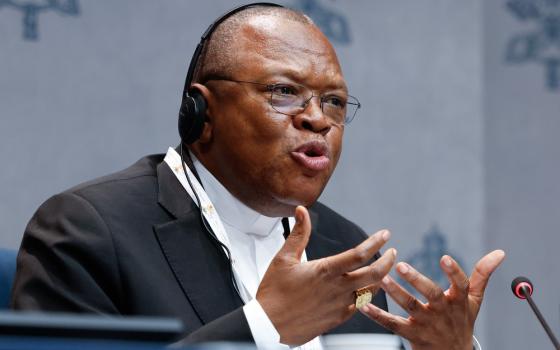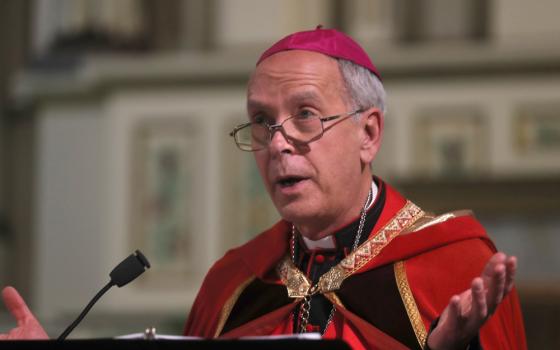One of the difficulties of doing a segment of the blog that entails coordinating replies from five different people is that sometimes I mess up with the coordination. As well, August is simply a dreadful time to try and enlist comments from people, many of whom are on vacation or otherwise happily absenting themselves from the rigors of analysis. So, I do not have an interviewee lined up for today. You are stuck with me.
This week, we are looking at the children of immigrants who have made significant contributions to the life of the nation or the Church or both. This is because of all the foolishness about changing the 14th Amendment to deny the children of immigrants their birthright: citizenship. Drawing analogies to earlier times is difficult because, throughout most of the 19th century, there were no restrictions on immigrants, so everyone was a legal immigrant. Still, the point holds: The history of America would be vastly more impoverished than it is were it not for the contributions made by the children of immigrants and we should remember that before we start placing new restrictions upon them.
Msgr. John A. Ryan was the first of eleven children born to William and Maria Ryan. They were both born in Ireland. John was born in Vermillion, Minnesota. He went on to become a priest, to graduate with a doctorate in theology from the Catholic University of America, become a professor of moral theology at St. Thomas College in St. Paul, Minnesota and, finally, return to CUA to teach moral theology there. He specialized in social justice issues and became a staffer at the National Catholic Welfare Conference, the forerunner of today’s USCCB.
Throughout the laissez-faire 1920s, Ryan’s was a voice of conscience, fighting to end Child Labor, a fight that brought him into direct conflict with Cardinal William Henry O’Connell of Boston, working on racial justice issues, and writing about the demands of economic justice. Ryan became friendly with Justice Brandeis and his wife and took Thanksgiving dinner them. His influence grew with the election of Franklin Delano Roosevelt in 1932. Roosevelt, and especially his Secretary of Labor, Frances Perkins, the driving force behind much of the most progressive, and enduring, features of the New Deal turned to Ryan for ideas and support. He took on Father Charles Coughlin when the radio priest began embracing ever more esoteric ideas and ever more vitriolic attacks on Roosevelt and the Jewish people. It was Coughlin who first employed, as an epithet, the title “Right Reverend New Dealer” to Ryan. It stuck, but as a badge of honor, not a mark of disgrace. Both Church and nation would have been much the poorer without Msgr. John A. Ryan’s contributions to Catholic social teaching and his efforts to bring that teaching to bear on the life of the nation.


